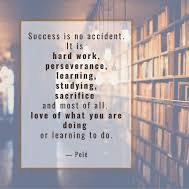Key Takeaways:
- Effective management impacts employee performance significantly, requiring managers to adapt their style and communication strategies.
- Building strong workplace relationships is essential for fostering engagement and driving long-term business success.
In today’s rapidly changing business landscape, effective management has become more crucial than ever in driving team success. Managers are tasked with navigating various challenges, from employee engagement to communication and performance metrics. This article aims to demystify modern management practices, highlighting effective management styles that can enhance team dynamics and ultimately lead to organizational success.
Understanding Management Styles
One of the first steps in becoming an effective manager is to understand different management styles. Each style has its own advantages and disadvantages, and the most successful managers often blend elements from multiple styles to address the needs of their teams.
-
Autocratic Management Style
An autocratic management style involves a single leader making decisions with minimal input from the team. While this style can lead to quick decision-making, it may inhibit innovation and dampen team morale. For instance, a project manager dictating every step of a project may find that team members feel unvalued and disengaged. -
Democratic Management Style
On the other hand, a democratic management style encourages team participation in decision-making. This approach can enhance employee engagement and satisfaction, as team members feel their opinions are valued. For example, a manager who holds regular brainstorming sessions for new product ideas fosters open communication and enhances creativity. -
Transformational Management Style
Transformational leaders inspire motivation and foster an environment where team members can thrive. They focus on developing their team by addressing individual needs, driving both growth and performance. Managers utilizing this style effectively create a vision for the future and motivate their teams to pursue it together. -
Laissez-Faire Management Style
The laissez-faire style hands off decision-making to employees, providing them with autonomy. Although this can cultivate creativity and innovation, it may lead to confusion and lack of direction if not managed well. A manager must provide guidelines and encourage responsibility within their teams to make this approach successful.
Supporting Today’s Workforce with Training and Development
As organizations face the challenges of attracting and retaining top talent, hiring and training processes must also evolve. A strategy that has proven successful involves implementing comprehensive training programs that focus on both soft and hard skills.
Organizations like Google and Apple prioritize continuous learning, encouraging employees to pursue personal development through various learning opportunities. By investing in training, companies can reskill their workforce, address knowledge gaps, and facilitate adaptation to industry changes.
Moreover, inclusion of diversity training not only promotes a more equitable workplace but also enhances employee productivity and team dynamics. Employees from different backgrounds offer unique perspectives and ideas, promoting innovation and problem-solving.
Creating an Open Channel for Communication
Effective communication is pivotal in improving team performance. Managers must cultivate a culture where feedback is welcomed and encouraged. This can be achieved through regular one-on-one meetings or team feedback sessions.
Implementing question-based keywords like “how can I enhance team communication?” and “what are the best practices for effective leadership?” can help managers frame their discussions. Encouraging open dialogue fosters trust and transparency, both of which are essential for collaborative teams.
Encouraging Employee Motivation and Productivity
Motivated employees are more productive and engaged. Managers can take simple yet effective steps to foster motivation. For instance, recognizing achievements—whether small or large—can boost morale and encourage continuous improvement. Celebrating milestones as a team and understanding individual drivers of motivation will pave the way for an enthusiastic and productive workplace.
In addition, stress management techniques should be woven into the fabric of workplace culture. Managers should routinely assess workloads and promote healthy work-life boundaries, allowing employees to perform at their best without burnout. Introducing stress-relief activities like team-building exercises or mindfulness sessions can significantly enhance overall well-being within the team.
The Importance of Relationship Building
Building strong relationships within teams is key to achieving success. Managers should focus on nurturing connections among team members through collaborative projects and social activities. Encouraging casual interactions can transform workplace dynamics, helping break down silos and facilitating effective teamwork.
Furthermore, when relationships are strong, employees feel more comfortable sharing ideas and voicing concerns. This culture of trust enhances communication, leading to a more cohesive and efficient team.
Adapting to Modern Business Ethics
In today’s business landscape, ethical behavior has gained immense importance. Managers must prioritize ethical decision-making processes, taking a stand against unethical practices. By promoting a strong ethical culture, managers can ensure that employees feel valued and respected, driving commitment and retention.
Conclusion: The Path to Effective Management
Effective management is not just about overseeing tasks but fostering an environment where employees feel empowered to contribute meaningfully. By understanding and adapting various management styles, investing in training, enhancing communication, motivating teams, and building relationships, managers can drive performance and contribute to lasting organizational success. Emphasizing ethical principles will further solidify this foundation, ensuring a healthy workplace culture as organizations navigate the future.













